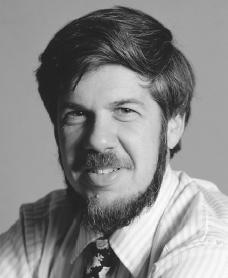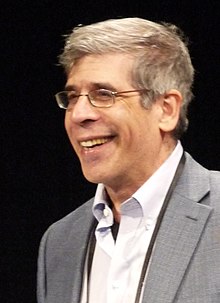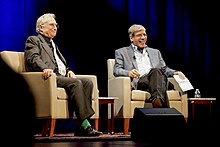
Creationism is the religious belief that nature, and aspects such as the universe, Earth, life, and humans, originated with supernatural acts of divine creation. In its broadest sense, creationism includes a continuum of religious views, which vary in their acceptance or rejection of scientific explanations such as evolution that describe the origin and development of natural phenomena.

Creation science or scientific creationism is a pseudoscientific form of Young Earth creationism which claims to offer scientific arguments for certain literalist and inerrantist interpretations of the Bible. It is often presented without overt faith-based language, but instead relies on reinterpreting scientific results to argue that various myths in the Book of Genesis and other select biblical passages are scientifically valid. The most commonly advanced ideas of creation science include special creation based on the Genesis creation narrative and flood geology based on the Genesis flood narrative. Creationists also claim they can disprove or reexplain a variety of scientific facts, theories and paradigms of geology, cosmology, biological evolution, archaeology, history, and linguistics using creation science. Creation science was foundational to intelligent design.

In evolutionary biology, punctuated equilibrium is a theory that proposes that once a species appears in the fossil record, the population will become stable, showing little evolutionary change for most of its geological history. This state of little or no morphological change is called stasis. When significant evolutionary change occurs, the theory proposes that it is generally restricted to rare and geologically rapid events of branching speciation called cladogenesis. Cladogenesis is the process by which a species splits into two distinct species, rather than one species gradually transforming into another.

Stephen Jay Gould was an American paleontologist, evolutionary biologist, and historian of science. He was one of the most influential and widely read authors of popular science of his generation. Gould spent most of his career teaching at Harvard University and working at the American Museum of Natural History in New York. In 1996, Gould was hired as the Vincent Astor Visiting Research Professor of Biology at New York University, after which he divided his time teaching between there and Harvard.

A transitional fossil is any fossilized remains of a life form that exhibits traits common to both an ancestral group and its derived descendant group. This is especially important where the descendant group is sharply differentiated by gross anatomy and mode of living from the ancestral group. These fossils serve as a reminder that taxonomic divisions are human constructs that have been imposed in hindsight on a continuum of variation. Because of the incompleteness of the fossil record, there is usually no way to know exactly how close a transitional fossil is to the point of divergence. Therefore, it cannot be assumed that transitional fossils are direct ancestors of more recent groups, though they are frequently used as models for such ancestors.

Recurring cultural, political, and theological rejection of evolution by religious groups exists regarding the origins of the Earth, of humanity, and of other life. In accordance with creationism, species were once widely believed to be fixed products of divine creation, but since the mid-19th century, evolution by natural selection has been established by the scientific community as an empirical scientific fact.

Michael Ruse is a British-born Canadian philosopher of science who specializes in the philosophy of biology and works on the relationship between science and religion, the creation–evolution controversy, and the demarcation problem within science. Ruse currently teaches at Florida State University.

In creationism, a religious view based on a literal reading of the Book of Genesis and other biblical texts, created kinds are purported to be the original forms of life as they were created by God. They are also referred to in creationist literature as kinds, original kinds, Genesis kinds, and baramins.
Evidence of common descent of living organisms has been discovered by scientists researching in a variety of disciplines over many decades, demonstrating that all life on Earth comes from a single ancestor. This forms an important part of the evidence on which evolutionary theory rests, demonstrates that evolution does occur, and illustrates the processes that created Earth's biodiversity. It supports the modern evolutionary synthesis—the current scientific theory that explains how and why life changes over time. Evolutionary biologists document evidence of common descent, all the way back to the last universal common ancestor, by developing testable predictions, testing hypotheses, and constructing theories that illustrate and describe its causes.

The Hominini form a taxonomic tribe of the subfamily Homininae ("hominines"). Hominini includes the extant genera Homo (humans) and Pan and in standard usage excludes the genus Gorilla (gorillas).

John F. Haught is an American theologian. He is a Distinguished Research Professor at Georgetown University. He specializes in Roman Catholic systematic theology, with a particular interest in issues pertaining to physical cosmology, evolutionary biology, geology, and Christianity.
Many scientists and philosophers of science have described evolution as fact and theory, a phrase which was used as the title of an article by paleontologist Stephen Jay Gould in 1981. He describes fact in science as meaning data, not known with absolute certainty but "confirmed to such a degree that it would be perverse to withhold provisional assent". A scientific theory is a well-substantiated explanation of such facts. The facts of evolution come from observational evidence of current processes, from imperfections in organisms recording historical common descent, and from transitions in the fossil record. Theories of evolution provide a provisional explanation for these facts.
Hindus have found support for, or ideas foreshadowing evolutionary ideas, in scriptures, such as the mytheme of Dashavatara, the incarnations of Vishnu starting with a fish.
Objections to evolution have been raised since evolutionary ideas came to prominence in the 19th century. When Charles Darwin published his 1859 book On the Origin of Species, his theory of evolution initially met opposition from scientists with different theories, but eventually came to receive near-universal acceptance in the scientific community. The observation of evolutionary processes occurring has been uncontroversial among mainstream biologists since the 1940s.
H. Allen Orr is the Shirley Cox Kearns Professor of Biology at the University of Rochester.

Why Darwin Matters: The Case Against Intelligent Design is a 2006 book by Michael Shermer, an author, publisher, and historian of science. Shermer examines the theory of evolution and the arguments presented against it. He demonstrates that the theory is very robust and is based on a convergence of evidence from a number of different branches of science. The attacks against it are, for the most part, very simplistic and easily demolished. He discusses how evolution and other branches of science can coexist with religious beliefs. He describes how he and Darwin both started out as creationists and how their thinking changed over time. He examines current attitudes towards evolution and science in general. He finds that in many cases the problem people have is not with the facts about evolution but with their ideas of what it implies.

Why Evolution is True is a popular science book by American biologist Jerry Coyne. It was published in 2009, dubbed "Darwin Year" as it marked the bicentennial of Charles Darwin and the hundred and fiftieth anniversary of the publication of his On the Origin of Species By Means of Natural Selection. Coyne examines the evidence for evolution, some of which was known to Darwin (biogeography) and some of which has emerged in recent years. The book was a New York Times bestseller, and reviewers praised the logic of Coyne's arguments and the clarity of his prose. It was reprinted as part of the Oxford Landmark Science series.

Donald Ross Prothero is an American geologist, paleontologist, and author who specializes in mammalian paleontology and magnetostratigraphy, a technique to date rock layers of the Cenozoic era and its use to date the climate changes which occurred 30–40 million years ago. He is the author or editor of more than 30 books and over 300 scientific papers, including at least 5 geology textbooks.

Faith Versus Fact: Why Science and Religion Are Incompatible is a 2015 book by the biologist Jerry Coyne concerning the relationship between science and religion. Coyne argues that religion and science are incompatible, by surveying the history of science and stating that both religion and science make claims about the universe, yet only science is open to the fact that it may be wrong.

The scientific study of speciation — how species evolve to become new species — began around the time of Charles Darwin in the middle of the 19th century. Many naturalists at the time recognized the relationship between biogeography and the evolution of species. The 20th century saw the growth of the field of speciation, with major contributors such as Ernst Mayr researching and documenting species' geographic patterns and relationships. The field grew in prominence with the modern evolutionary synthesis in the early part of that century. Since then, research on speciation has expanded immensely.














